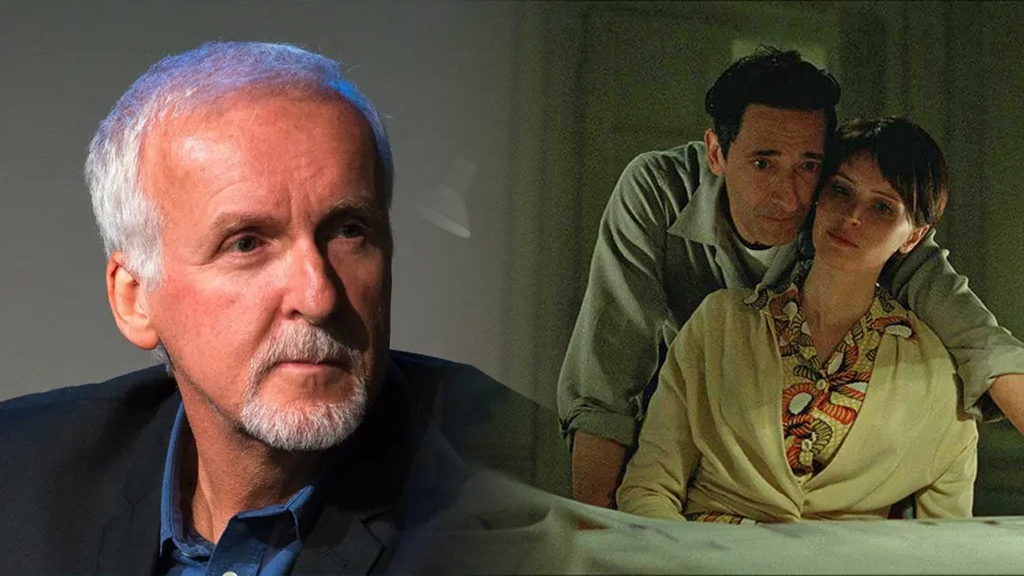- Web
- Feb 15, 2026
The contentious issue of AI in the film industry
-

- Ahmad Afzal
- Feb 25, 2025

The use of artificial intelligence (AI) in the entertainment industry seems to be an inevitably moving forward. But, just as it is certain that some will incorporate the ‘tool’, others will be dogged in their opposition to it.
James Cameron seems to be one of those people. One of the most accomplished directors still alive revealed the incorporation of something that may become a mainstay of AI opponents moving forward. In the upcoming third installment in the Avatar franchise, Avatar: Fire and Ash, a title card will announce that no generative AI was used in the making of the movie.
Cameron has been vocal in his disapproval regarding the use of AI in writing screenplays. He stated that AI was a “disembodied mind” simply “regurgitating what other embodied minds have said.” His stance on the use of AI in film creation is clear; AI can only copy as it does not have the lived experiences of a person nor the emotions that come with such.

However, while extremely influential, Cameron is but one person. His comments may dissuade some from pursuing the use of AI, but others will trudge forward. And one notable example is up for multiple awards at the 97th Academy Awards on Sunday, March 2.
Also read: What is Brutalism? And why do architects hate ‘The Brutalist’?
The Brutalist
“The Brutalist”, a film nominated for best picture at the Oscars about an architect and his wife’s resettlement in America, where an industrialist commissions a grand monument, used AI to alter the performances of its leads. Adrien Brody, who’s performance as Laszlo Toth earned a nomination for Best actor, and Felicity Jones, who’s performance as Erzsebet Toth earned a nomination for best supporting actress, play Hungarians in the film. Thus, parts of the film feature the two leads speaking in their native tongue. But, the two apparently struggled a tad with the pronunciation. According to film editor David Jancso, after a failed attempt at using automated dialogue replacement (ADR), the team settled on AI software that melded Jancso, a native speaker, with Bordy and Jones performances, in order to replace “letters here and there.”

Jancso stated that the actors did a “fabulous job” and their performances only needed to be enhanced slightly. However, he also said that that they “tried to ADR them completely with other actors but that just didn’t work.”
Jancso also said that AI shouldn’t be controversial to talk about as the film only uses it in ways that have been done before, and that it serves to make “the process a lot faster.” Film director Brady Corbet expressed similar sentiments, stating that while innovative respeecher technology was used to edit Hungarian language dialogue, the authenticity of Adrien and Felicity’s performances were maintained.
Despite Jancso and Corbet’s assurances that the performances were still the actors’ own, it begs the question; where is the line drawn? To what degree can a performance or film be altered by AI and remain ‘authentic’? If we let AI into our art even a bit, who will be able to stop indulging themselves to the ease it provides before it completely erases any human facet to a performance?
Nicholas Cage
These are the questions and fears being asked and felt by the entertainment industry today. Look no further than Nicholas Cage for an example. Earlier this month, after winning best actor for his performance as Paul Matthews in ‘Dream Scenario’, Cage voiced his fear for the direction films were heading.

“Robots cannot reflect the human condition for us. That is a dead end if an actor lets one AI robot manipulate his or her performance even a little bit, an inch will eventually become a mile and all integrity, purity and truth of art will be replaced by financial interests only.”
Also read: Porn stars: Oscar favorite ‘Anora’ gets sex work right
Harrison Ford
However, not every actor is as off put by the continuing integration of AI into media. Harrison Ford defended its use in Indiana Jones and the Dial of Destiny, in which he was de-aged. “This process, this scientific mining of this library, this was put to good,” Ford said in 2023, adding that “it’s just a trick unless its supported by a story, and it sticks out like a sore thumb if it’s not honest.”
Ford has more recently said that he isn’t afraid of AI, telling the Wall Street Journal that “you don’t need artificial intelligence to steal my soul, you can already do it for nickels and dimes with good ideas and talent.” While Ford may not be afraid, AI growth in the industry is undeniable, and unless spoken against, will become even more prominent.
Ben Affleck
Ben Affleck is another actor that believes AI is just a tool that cannot replace creatives. Instead it is the “laborious, less creative and more costly aspects of film-making” that will be “disintermediated”. In turn, Affleck believes this will “lower the barrier for entry” and “allow more voices to be heard.”

But, once again, Affleck and Ford do not consider the difficulty in self-restraint that filmmakers, producers, and studios will encounter when limiting how much AI generated, or modified, content they allow in their films. AI is constantly getting better, and it will constantly provide new ways to make life easier. Taking one step into the world of AI leaves the door open for it to come rushing into ours. And we may not be able to close that door. So, will filmmakers be able to deny the ease that it brings? And if they can’t, is the future of the industry one which features less and less of real peoples’ perspectives?
Keanu Reeves
Keanu Reeves believes so, stating in an interview for John Wick: Chapter 4 that “what’s frustrating about that is you lose your agency.” He added that “when you give a performance in a film, you know you’re going to be edited, but you’re participating in that.”
“Culturally, socially, we’re gonna be confronted by the value of real, or the non-value.” This fear has led Reeves and others to include clauses in their contracts prohibiting its use on their performances. Additionally, following the actors and writers strike in 2023, the amended TV/Theatrical Agreement requires the explicit consent of an actor for their work to be modified.
While “The Brutalist”, and other films released in these past few years, are only using AI in slight, practically unnoticeable ways, people may soon see AI in a much more obtrusive manner. Or, maybe they won’t notice it at all. But, that won’t mean its not there. And it wont mean that whats shown on screen are real lived experiences.
Also read: Vatican thriller ‘Conclave’ wins top prize in SAG awards upset




